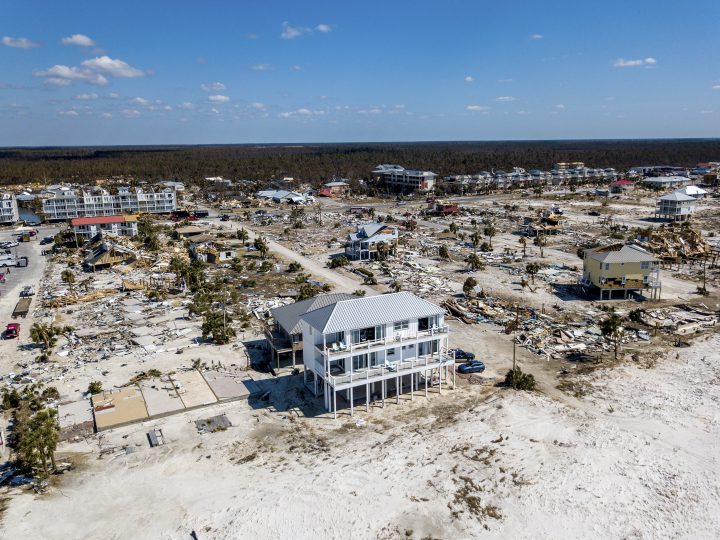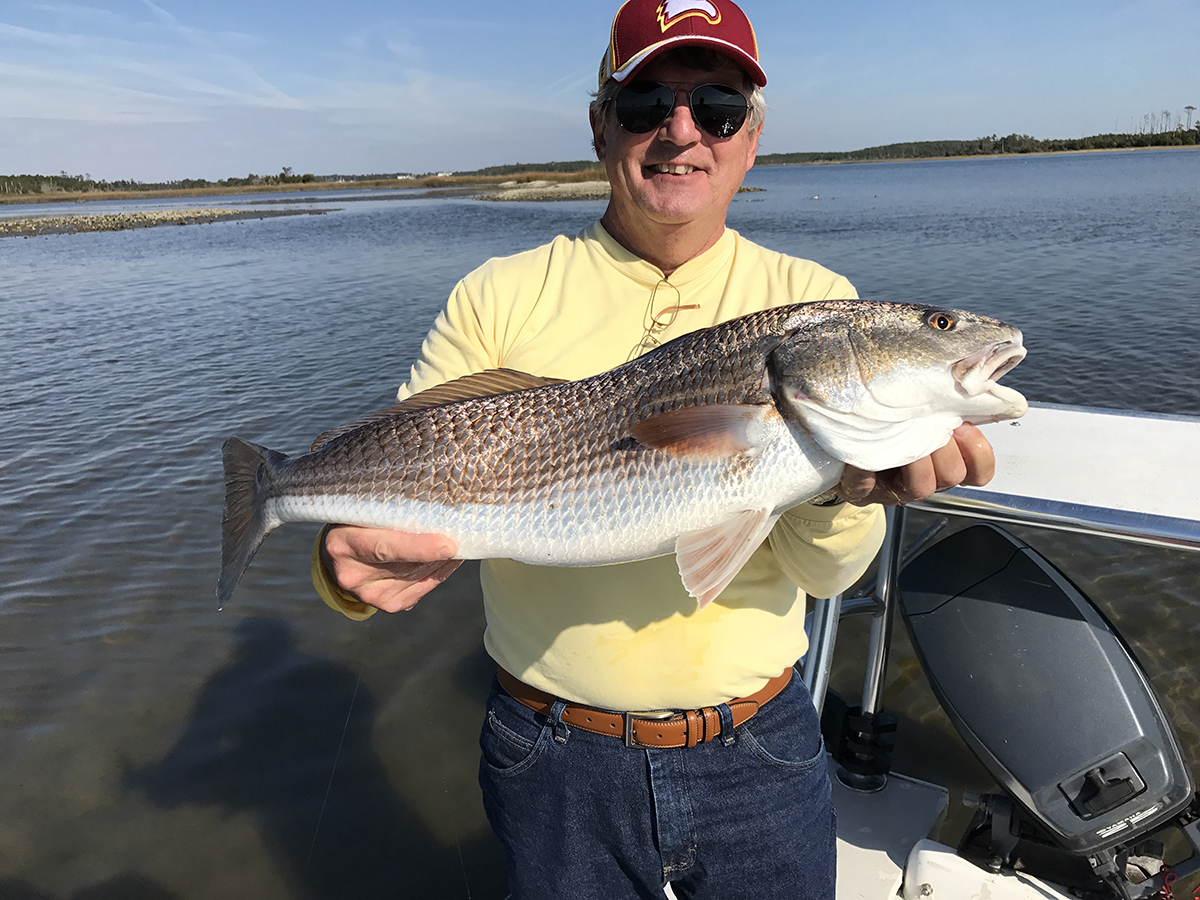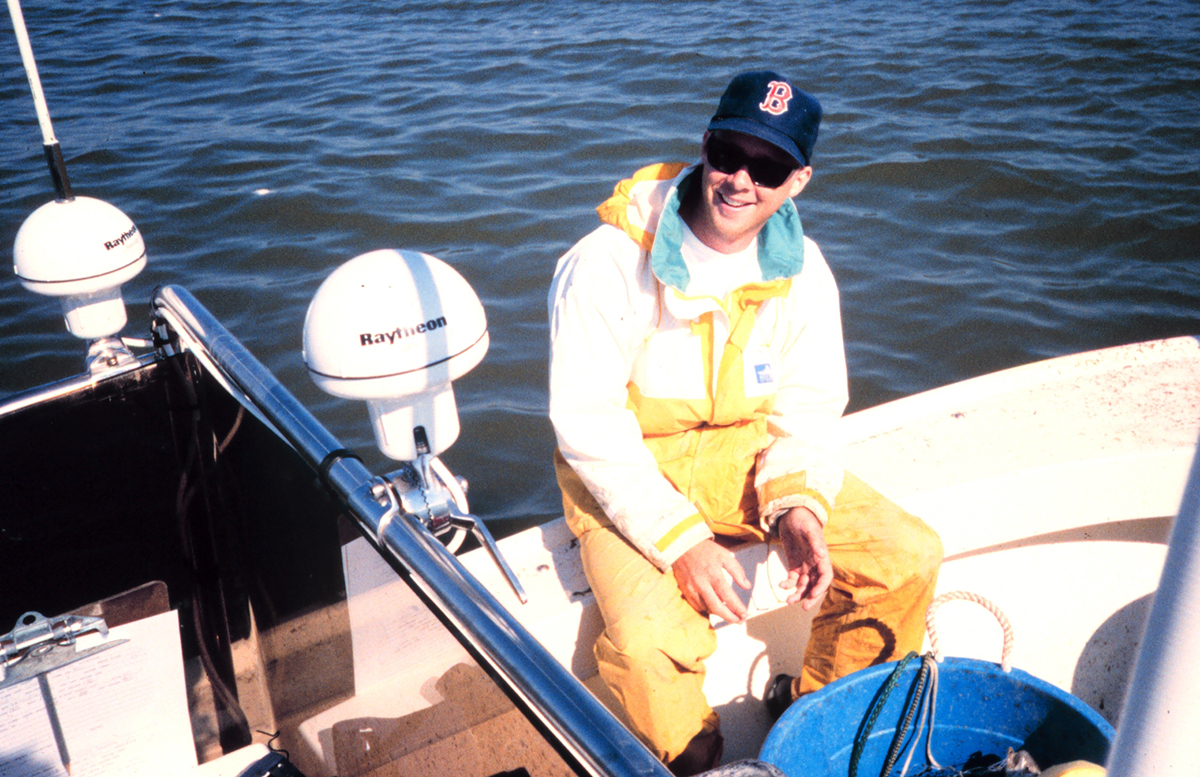
This is the house in Mexico Beach, Florida, that famously survived Hurricane Michael. It didn’t lose a shingle but everything around it was destroyed. The picture speaks volumes about us, our politics and our woeful unreadiness to face a harrowing future.
Some media accounts described the house’s survival as “miraculous,” as if the owners were just lucky or maybe touched by a smiling Neptune. The truth is that money and brains saved this house; miracles had nothing to do with it.
Supporter Spotlight

Neither did government. And that’s the real problem.
The two men who own this house understood the dangers of living at the water’s edge during a time of radical changes in our climate. They purposely set out to build a house to withstand the powerful hurricanes that they knew would become a normal feature of our future. That meant throwing away Florida’s inadequate building-code book. Instead of building a house to withstand 120 mph winds, as the code required, they built one to stand up to 250 mph winds and 25-foot storm surges. They built their house on 40-foot steel pilings, with reinforced concrete walls a foot thick, with steel cables that run through those pilings to tie down the roof.
All that doubled the cost of the “miracle” house. But these were men of means. They could afford it. They survived.
Those living around them relied instead on their government to keep them safe. They built their houses to the state’s code, assuming all those regulations would protect them. Those houses were destroyed.
To think that we will get our carbon emissions under control in the next decade to avoid the worst effects of a runaway climate, as scientists warned in a recent, much-publicized report, is a fool’s bet. Adapting to the changing climate is all that’s realistically left to us at this point.
Supporter Spotlight
That will require concerted government action on all levels. So far, government is failing us.
In Florida, for instance, Gov. Rick Scott, now running for the U.S. Senate, ignored for years the warnings that a third of his state will disappear under the waves in next 100 years. His administration at one time even banned the words “climate change” in official reports.
Congressional leadership on the issue has been an unfortunate fatality of the crippling tribalism of our politics in Washington. Recent polling and research suggest that more Republicans in Congress than you might think believe we ought to be doing more to combat climate change and prepare for its consequences. But Republicans view it as a Democratic issue. They aren’t so much skeptical of climate change as they are of Democrats. Because the Democrats are for it, they have to be against it.
Bob Inglis, a former Republican congressman from South Carolina, spoke of his opposition in his first several years in Congress: “All I knew was that Al Gore was for it, and therefore I was against it,” he recently told researchers.
In the White House, we now have a man who once said climate change was a Chinese hoax to cripple the U.S. economy. His understanding of the issue is laughable and his energy policies that promote burning more coal and oil would only make things worse. Under such a man, the federal bureaucracy will do nothing to help us.
In fact, we can expect it to do more of the same. The Federal Emergency Management Agency will come in and pick up the pieces left by hurricanes Florence and Michael and then make money available to put it all back together again. The federal flood insurance program might require policyholders to rebuild above the current floodplain, but it won’t require them to avoid the flood that will come in 20 years when the seas are 6 inches higher.
Here, in North Carolina, our legislature has done nothing to help coastal communities adapt. It even passed a law a few years ago that bars state agencies from using scientific forecasts for future sea level rise when planning projects.
With the election of a Democratic governor, state agencies are beginning to take the first steps to help communities prepare for a changing world. Swansboro is using some state money to devise a plan that will identify areas in town that are prone to flooding and storm damage now or will be in the future.
We volunteered to take that step and are one of only a handful of coastal communities in the state that have. No one said we had to. Such an approach won’t work. Adaptation planning, like land-use planning is now, must become a required step for all coastal communities.
But that will take money and political will. Both are lacking now.
As the hurricanes get stronger and more frequent, as the heat waves and droughts get longer and more intense, as the wildfires spread over more and more acres, we will find that will and that money. We will have to.
We are already seeing movement in the polls as more and more people, regardless of their politics, recognize the dangers we face. Enlightenment proceeds action. It always has.
But we can’t wait long. The longer we wait, the more limited and expensive the choices
The picture foretells the price of inaction. People with money will find ways to survive. The rest of us, awaiting help from our government that never came, will just get blown away.







